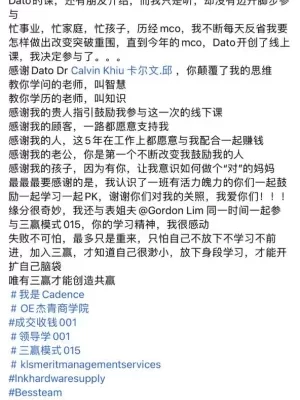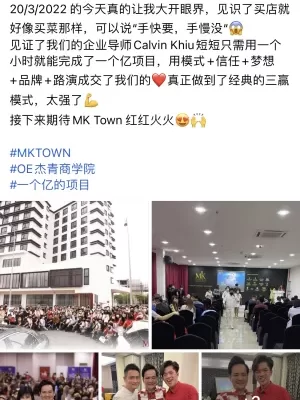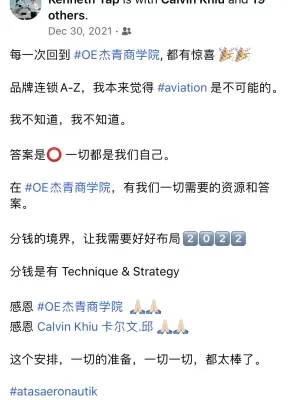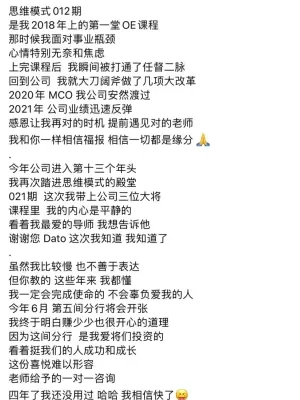The HRDF Grant, formerly known as the Human Resources Development Fund (HRDF) grant, provides Malaysian companies with financial assistance for employee training and development. The program aims to improve workforce skills, productivity, and economic growth by encouraging companies to invest in HRDF training initiatives. In this article, we address some of the frequently asked questions (FAQs) regarding HRDF Grant to help employers and employees better understand the benefits, eligibility, and application processes.
1. What is the HRDF Grant?
The HRDF Grant is a financial incentive provided by the Human Resources Development Corporation (HRD Corp), a government agency under Malaysia’s Ministry of Human Resources. The grant supports Malaysian employers in providing training and upskilling opportunities for their employees, helping to build a more competitive workforce. Through HRD Corp, companies can access various hrdf training schemes tailored to specific industry and business needs.
2. Who is Eligible for the HRDF Grant?
Eligible employers are those registered under HRD Corp and contribute to the HRD levy. The eligibility requirements are:
- Mandatory Registration: Employers in selected sectors with 10 or more Malaysian employees must register with HRD Corp and contribute 1% of each employee’s monthly wages.
- Optional Registration: Employers with 5 to 9 Malaysian employees can opt to register voluntarily and contribute 0.5% of each employee’s monthly wages.
3. What Types of Training are Covered Under the HRDF Grant?
HRD Corp covers several types of training programs to suit various business needs:
- HRD Corp Claimable Courses: Covers approved courses aimed at specific skills development. Applications require supporting documents like invoices, trainer profiles, and course schedules.
- Skim Bantuan Latihan (SBL): Allows employers flexibility in selecting training providers and courses, provided they meet HRD Corp requirements.
- Skim Latihan Bersama (SLB): Supports joint training initiatives for multiple employers within the same industry(SLB-HRDCorp-Grant-Helper).
- Training Facilities & Renovation (ALAT): Provides financial assistance for setting up or upgrading in-house training facilities.
- Industrial Training Scheme (ITS): Offers support for companies providing practical training opportunities to students or trainees.
4. What Expenses Does the HRDF Grant Cover?
The Human Resources Development Fund (HRDF), now known as HRD Corp, offers financial assistance to Malaysian employers for various HRDF training-related expenses. The specific costs covered depend on the type of HRDF training program and are outlined in HRD Corp’s Allowable Cost Matrix. Key expenses that may be covered include:
- Course Fees: Tuition or registration fees for approved training programs.
- Employee Allowances: Daily allowances for trainees, which may cover meals, accommodation, and transportation, depending on the training location and duration.
- Training Materials: Costs for consumable materials used during training sessions, such as stationery and other necessary supplies.
- Accommodation and Transportation: Expenses for lodging and travel, particularly for training conducted away from the employer’s premises or for trainees traveling from different branches.
It’s important to note that the coverage and limits for these expenses vary based on the specific training scheme and are subject to HRD Corp’s terms and conditions. Employers should consult the latest Allowable Cost Matrix and relevant guidelines to understand the financial assistance applicable to their chosen HRDF training programs.
5. When Should Employers Apply for the Grant?
Employers must submit their HRDF Grant applications at least one day before the training commences. This advance submission ensures sufficient time for HRD Corp to review and process the application, facilitating timely approval and seamless training implementation. Applications are submitted through the e-TRiS portal on the HRD Corp website. Employers should ensure all required supporting documents are included to avoid delays.
6. How Long Does It Take to Receive Conditional Approval?
Conditional approval is generally provided within 24 hours of the application submission, provided all documents are complete and accurate. This enables companies to proceed with training without significant delays.
7. What is the HRD Corp’s Audit and Verification Process?
HRD Corp’s audit and verification process ensures that training grants are utilized appropriately and in compliance with established guidelines. This process involves several key steps:
- Application Review: Upon receiving a grant application, HRD Corp assesses the submitted documents to verify eligibility and adherence to program requirements.
- Conditional Approval: If the application meets the necessary criteria, HRDF Grants conditional approval, allowing the HRDF training to proceed as scheduled.
- Training Monitoring: During the training period, HRD Corp may conduct audits and verifications to ensure that the training is conducted as approved. This can include physical verification visits or online verification methods, depending on the nature of the training.
- Post-Training Evaluation: After the training concludes, HRD Corp reviews the submitted claims and supporting documents to confirm that the training was completed as planned and that funds were used appropriately.
- Final Approval and Disbursement: Upon satisfactory verification, HRD Corp processes the payment of the grant to the employer.
Employers are advised to maintain accurate records and ensure compliance with HRD Corp’s guidelines throughout the training process to facilitate smooth audits and verifications.
8. What Are the Common Challenges Faced During the Application Process?
Some common challenges faced by employers during the application process include:
- Incomplete Documentation: Missing or incorrect documentation can delay approval.
- Misunderstanding of Eligibility Requirements: Employers must verify that they meet the eligibility criteria for the specific scheme they are applying for.
- Non-compliance with HRDF Training Requirements: Ensuring the selected training provider and course content align with HRD Corp’s standards is essential for approval.
9. How Can Employers Maximize the Benefits of the HRDF Grant?
To maximize the benefits of the HRDF grant, employers should consider the following strategies:
- Align HRDF Training with Organizational Goals: Select training programs that directly support your company’s objectives and address specific skill gaps within your workforce. This ensures that the training contributes to overall business growth and employee development.
- Understand Eligibility and Application Procedures: Familiarize yourself with HRD Corp’s eligibility criteria and application processes. Ensure timely submission of applications and all required documentation to avoid delays or rejections. Applications must be submitted at least one day before the training commences.
- Utilize Available Schemes: Explore various HRD Corp schemes such as HRD Corp Claimable Courses, Skim Bantuan Latihan (SBL), Skim Latihan Bersama (SLB), Training Facilities and Renovation (ALAT), and Industrial Training Scheme (ITS). Each scheme offers unique benefits tailored to different HRDF training needs.
- Maintain Compliance and Accurate Records: Adhere to HRD Corp’s guidelines and maintain detailed records of all training activities, expenses, and outcomes. This facilitates smooth audits and verifications, ensuring continued eligibility for grants.
- Plan Ahead: Develop a comprehensive training plan that anticipates future skill requirements and aligns with HRD Corp’s funding cycles. Proactive planning allows for better resource allocation and maximizes grant utilization.
- Engage Accredited HRDF Training Providers: Partner with HRD Corp-approved training providers to ensure that the programs meet quality standards and are eligible for funding. This also enhances the credibility and effectiveness of the training.
- Monitor and Evaluate Training Outcomes: Regularly assess the impact of training programs on employee performance and organizational productivity. Use this data to refine future training initiatives and demonstrate the value of investments made through the HRDF grant.
By implementing these strategies, employers can effectively leverage HRDF grants to enhance their workforce’s skills and drive organizational success.
10. How Does HRD Corp Help Enhance the Quality of Malaysia’s Workforce?
By incentivizing employers to invest in employee training, HRD Corp:
- Upskills Employees: It equips employees with skills necessary for personal and professional growth.
- Increases Productivity: Well-trained employees can perform tasks more efficiently, contributing to business growth.
- Encourages Innovation: Training often introduces new skills and ideas, fostering innovation within companies.
11. Who Can Employers Contact for Assistance with HRDF Grant?
Employers can reach out to HRD Corp for clarification or assistance:
- Phone: 1800-88-4800
- Email: support@hrdcorp.gov.my
- Submit query about HRDF grant, refer guideline pdf.
12. What Should Employers Do If Their Application is Queried?
If an application is queried, employers have one month to resubmit the application with the required information and documents. Failure to resubmit within this period results in the grant expiring(Query-Grant-Helper).
13. Can Employers Cancel an Approved Grant?
Yes, employers can cancel an approved grant. Once canceled, the grant amount is returned to the employer’s grant balance. The cancellation request must include the reason for cancellation and will be reviewed by a Grant Officer within two working days(Cancel-Grant-Helper).
14. Is It Possible to Delete an Unsubmitted Grant Application?
Employers can delete unsubmitted grant applications, which will automatically expire if pending for more than seven days. This helps employers manage their applications and avoid accidental submissions(Delete-Grant-Helper).
15. Can Employers Modify an Approved Grant Application?
Yes, employers can request modifications to approved grant applications within one month of the approval date. The modification request must include a reason, and approval is subject to the discretion of the Grant Officer(Modification-Grant-Helper).
16. What If Employers Wish to Withdraw an Application Before Approval?
If employers wish to withdraw a grant application before it is approved, they can submit a withdrawal request. Once the withdrawal is approved, the grant amount is restored to the employer’s grant balance(Withdraw-Grant-Helper).
17. How Can Employers Appeal a Rejected Grant Application?
Employers can appeal a rejected grant application by submitting an official appeal within one month of training completion. The appeal process includes providing a justification and relevant documents. Appeals are processed within two weeks and, if approved, generate an Appeal ID for resubmission(Grant-Helper-Appeal).
18. What Documents Are Needed to Appeal a Grant?
To appeal, employers need to submit:
- An official appeal letter
- Supporting documents (e.g., course content, quotation of course fee, trainer profile)
- A completed manual grant application form, available on the HRD Corp website(Grant-Helper-Appeal).
19. What are the steps involved in the HRDF Grant Conditional Approval Process?
The HRDF Grant Conditional Approval Process is structured to ensure that training Grant are applied for, approved, and reimbursed systematically. Here’s a summary of the seven steps involved:
- Submission of Application: Employers submit the grant application along with all required supporting documents.
- Self-Declaration: The application must include a self-declaration that all information provided is true and accurate.
- Conditional Approval: Within 24 hours, the employer typically receives conditional approval, and the training provider is notified.
- Training Commencement: The training can then begin as scheduled.
- Audit and Verification: HRD Corp may perform audits or verifications before or after payment to ensure compliance.
- Claims Submission: After the training, employers submit claims for the approved grant.
- Payment and Completion: Upon verification, HRD Corp completes the payment, concluding the grant process.
For any additional questions or help, employers can reach out to HRD Corp’s Call Centre at 1800-88-4800 or email support@hrdcorp.gov.my.
20. Can employers obtain HRDF Grant for training conducted by non-registered HRDF training providers?
Employers seeking HRD Corp (formerly HRDF) grants for training programs conducted by non-registered training providers can do so under specific conditions. According to HRD Corp’s guidelines, the One-Off Approval for SBL Scheme allows employers to apply for grants for training conducted by non-registered providers, provided they fall under certain exception categories. These exceptions include:
- Non-Governmental Organizations (NGOs): NGOs whose primary business focus is unrelated to training or consultancy can conduct up to four training sessions per year without registering as training providers.
- Associations: Similar to NGOs, associations not primarily focused on training or consultancy are permitted up to four training sessions annually without registration.
- Societies, Persatuan, and Kelab: Organizations directly connected to government departments may also qualify under this scheme.
- Foreign-Based Training Providers: Overseas providers conducting public workshops, seminars, or conferences in Malaysia are limited to four sessions per year.
Employers must apply for a one-off approval letter from HRD Corp before the training date to utilize this provision. The application should be submitted preferably one month in advance to allow sufficient time for processing and subsequent grant application. Required supporting documents include an official letter from the organization, relevant registration documents, detailed program information, and speaker profiles. Complete applications are processed within five working days, and successful applicants are notified via email.
It’s important to note that, effective April 1, 2021, HRD Corp no longer approves training grant applications for programs offered by registered HRDF training providers that are not registered under the SBL-Khas scheme. Therefore, employers should ensure that their chosen training providers and programs comply with HRD Corp’s current registration requirements to be eligible for grants.
In summary, while HRD Corp grants are generally intended for training conducted by registered providers, the One-Off Approval for SBL Scheme offers a pathway for employers to obtain funding for specific training programs conducted by non-registered providers, subject to the outlined exceptions and approval process.
Our Recommendation: Take Your Team to the Next Level with OE HRDF Claimable Team Building Solutions

For the ultimate team building event, OE Resort is Malaysia’s No.1 team building place known for its comprehensive outdoor training programs. Just 45 minutes from Kuala Lumpur, OE Resort offers HRDC claimable team building programs that include leadership development, communication exercises, and a wide array of outdoor activities such as rock climbing and flying fox. This location for team building is perfect for fostering team spirit while developing professional skills.
Here’s why OE Resort is the No.1 team-building destination:Comprehensive Outdoor Team Building Malaysia: OE Resort specializes in various activities that foster teamwork, including rock climbing, flying fox, tug of war, water polo, and more. These activities are designed to strengthen team collaboration and boost morale while ensuring participants have a memorable experience.

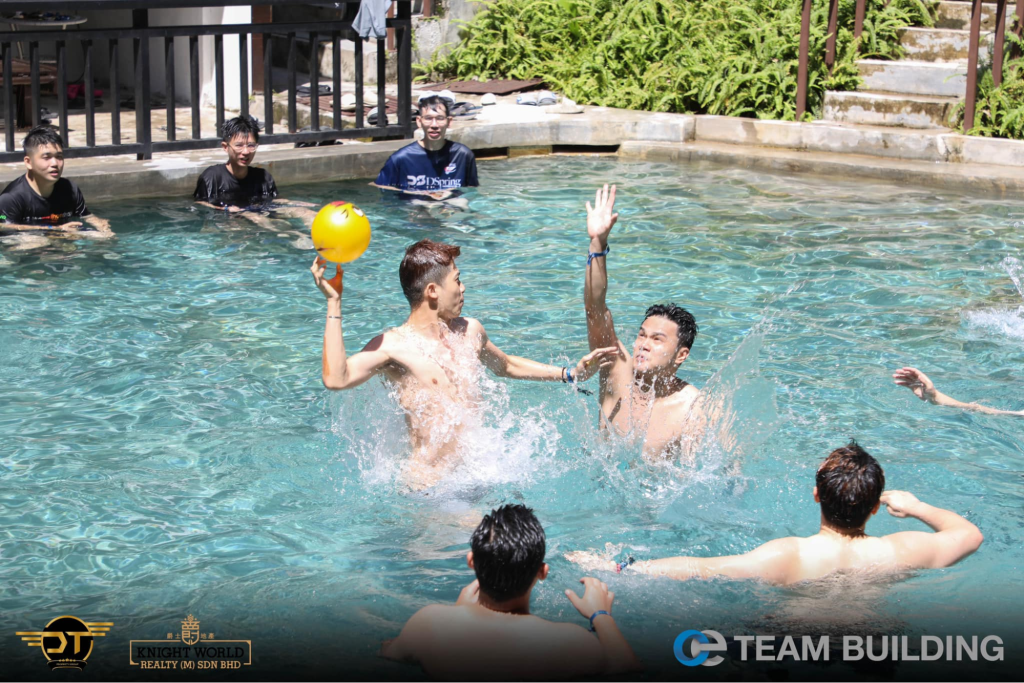

- HRDF Claimable Outdoor Team Building Training Programs: Companies can take advantage of the HRDC (Human Resource Development Corporation) claimable training, allowing them to fund team-building activities while developing key employee skills. OE Resort also offers customized itineraries to ensure that your team’s objectives are met, from leadership training to goal alignment workshops.
- Comfortable and Unique Accommodations: Enjoy OE Resort’s space capsule accommodations and high-end dining, making it more than just a day trip but a comprehensive 2-day, 1-night team-building retreat. This is the perfect setup for executives and teams looking to build stronger connections in a natural, relaxed environment.
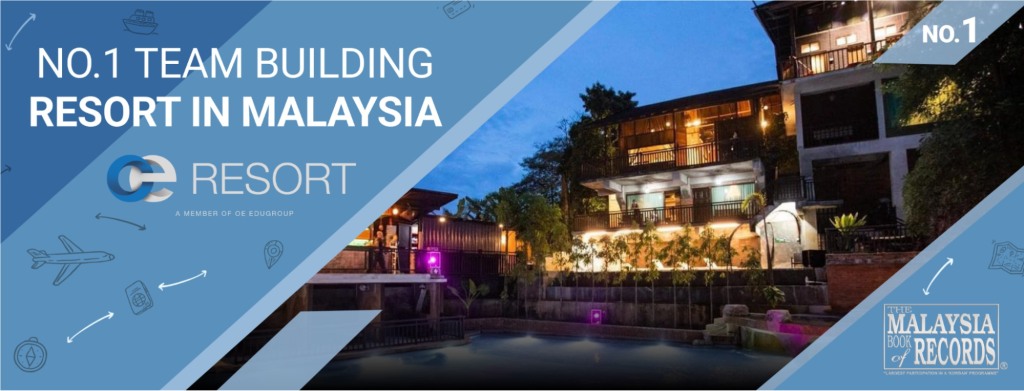
- Expert Training: Programs are led by OE’s certified trainers, ensuring a high-impact experience with a focus on leadership, team collaboration, and skill development. The resort is well-equipped with professional outdoor instructors who guide participants safely through all activities.
Highlights:
- HRDF claimable team building programs
- Activities: rock climbing, flying fox, and more
- Space capsule accommodations for a unique stay
- Location: Pt 1450, Tempat Bt.9, Jln Seremban, Mukim Setul, Negeri Sembilan
For more details, check out our Facebook page, tailor the perfect team building event by visiting OE Group’s official corporate team building page, or contact us at:
- 601115608888 (Ben Liu)
About HRDF Grant
The HRDF Grant offers valuable opportunities for Malaysian businesses to invest in their employees’ professional growth. By understanding the requirements, planning ahead, and following the correct application procedures, employers can take full advantage of the HRDF Grant. This investment not only benefits individual businesses but also strengthens Malaysia’s workforce, driving the nation towards economic advancement.
For more details on HRDF Grant, visit the HRD Corp Official Portal.
打造高绩效团队,学习高阶系统化团队管理开始!
掌握科学的管理系统与绩效机制,不再靠“喊口号”带团队!
参加【团队管理线下课】,学习如何通过绩效对标协议与可执行的管理制度,激发员工潜能,实现组织高速成长。
✅ 适用于企业老板、团队管理层
✅ 落地实操:绩效对标协议 × KPI × 制度管理
✅ 一个课程,让你的团队 “主动跑、自动干”


